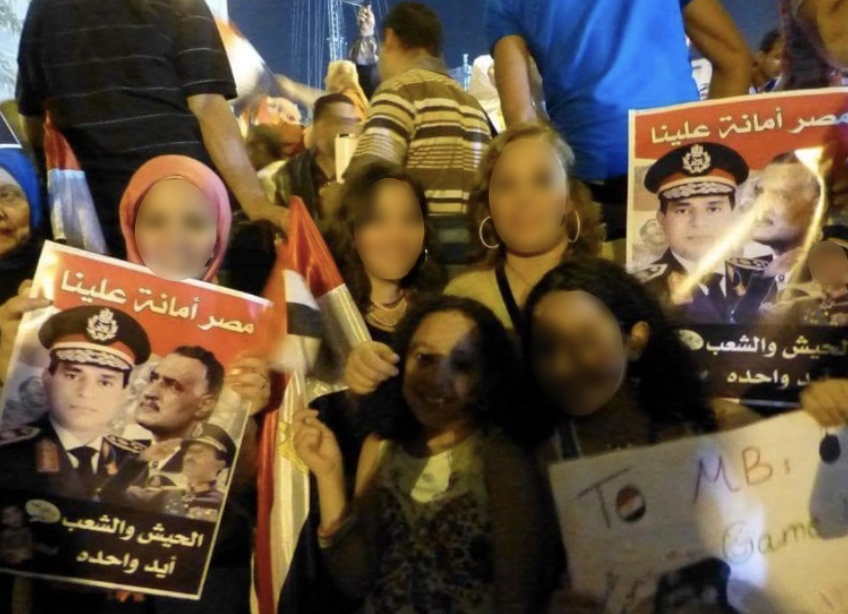Diaries of a Token Minority
In theory, icebreakers form connections; in practice, they can highlight ignorance. I once approached an icebreaker with enthusiasm, only for it to end with my identity reduced to a stereotype and my narrative rewritten without my consent.
During a training workshop, we were tasked with crafting a headline summarising a partner’s story after a brief conversation. While my partner and I bonded effortlessly over shared experiences and light-hearted topics, the mood quickly shifted when they revealed their headline about me. My smile disappeared from my face as I heard them declare: “Nourhan’s Life: Escaping a war-torn Egypt to Dubai then pursuing journalism in London.”
That wasn’t my story. Shocked and unsettled, I realised my casual words had been grossly misinterpreted. They gave me a thumbs-up after we were done, completely oblivious to my inner turmoil, and I avoided them for the rest of the programme.
Growing up as a minority of any kind, you are acutely aware of your role in a much greater narrative as a representative of your people. As Arab Muslims, we feel the social injustice of structural racism and constantly see exaggerated stereotypes and tropes being played out in the media. As a child in a multicultural international school, I was warned by my parents against “proving the stereotypes right”. Heated arguments in the schoolyard could be seen as examples of innate Arab aggression; meanwhile, mentioning Islamic traditions around my non-Muslim friends could be misconstrued as attempting to coercively convert them due to my religious extremism. I’ve always been very cautious in how I present myself.
Yet this imperfect stranger had tokenised my identity to tell a fabricated tale of an oppressed, disadvantaged Arab who had struggled against all odds to find salvation in the West. In just three minutes, I was typecast as a political refugee in a heartbreaking but hopeful plot about the UK’s role in liberating international students from the suffocating clutches of the Middle East.
In January, the UK banned postgraduate students from bringing their families to the country for the duration of their course. On May 12th, the UK announced radical reforms to its immigration system, reducing the post-study work period for international graduates from 2–3 years to just 18 months and introducing stricter requirements for institutions that admit international students. Meanwhile, in Canada, an international student cap promises to grant 10% fewer sponsored-study visas to “address the housing shortage, overburdened health systems, and rising costs of living”. A similar legislation recently failed to pass the Australian Senate, striking both outrage and relief, though the centre-right Liberal Coalition party has promised that if elected, it will implement an even harsher cap. With figures like the former Home Secretary Suella Braverman fueling the narrative, public discourse conflates international students from ethnic backgrounds with asylum seekers - two groups with very different circumstances -encouraging more widespread racially motivated microaggressions towards both.
I did not “escape” Egypt after the 2013 revolution. In fact, my family and I were among millions of protesters in Tahrir Square demanding the ousting of Mohamed Morsi and his Muslim Brotherhood political party from power.

(pictured in the centre holding an Egyptian flag)
Yet, perhaps because I’m Muslim, he assumed that I must’ve been a political Islamist who needed to “flee” following the regime change.
My parents made tremendous sacrifices so that my sister and I could have more opportunities than they did growing up, and I will forever be grateful to them. They left behind the familiar routines and support systems they had grown up with because a job opportunity, though isolating, promised to open up the doors of possibilities for my sister and me. They didn’t invest in real estate properties, luxury cars, or designer clothing - they invested in us.
I had a very privileged childhood. I went to private school and travelled abroad most summers. When my sister and I wouldn’t stop breaking out into song, my parents encouraged us to try musical theatre. I still receive a monthly allowance, which contributes to a savings account to help me build my life after graduation.
I’ve certainly faced hardships and challenges in my life - and occasionally, they emerge from my strained home country. But I would be delusional to paint myself as a victim because the reality is, in comparison to others in the Middle East and North Africa, my story is far from tragic.
Some of my best friends growing up had fled war-torn countries. I listened to their firsthand accounts of deeply traumatising events: the constant backdrop of explosions and bomb sirens in Southern Lebanon as children played outside; interrogations by armed Israeli forces at West Bank checkpoints during trips to the mall for Christmas shopping; and being forced out of their homes at gunpoint by the Taliban. And these were just a few of the stories they shared.
Even then, none of these individuals blame their nations for their struggles. They do not resent their countries for the instability brought about by complex histories of colonisation, wars and corruption. Witnessing inequality should make you hate the system, not the people who inherited generations of poor social infrastructure.
The reality is that , more often than not, being forced to grow up abroad due to circumstance does one thing: makes you yearn for a time when your home can offer you the same stability and opportunities. It motivates you to make a difference and shape the future of your nation - not feel ashamed from your roots.
I’m not a martyr and I’m not a victim … I’m just Egyptian.
Post a comment